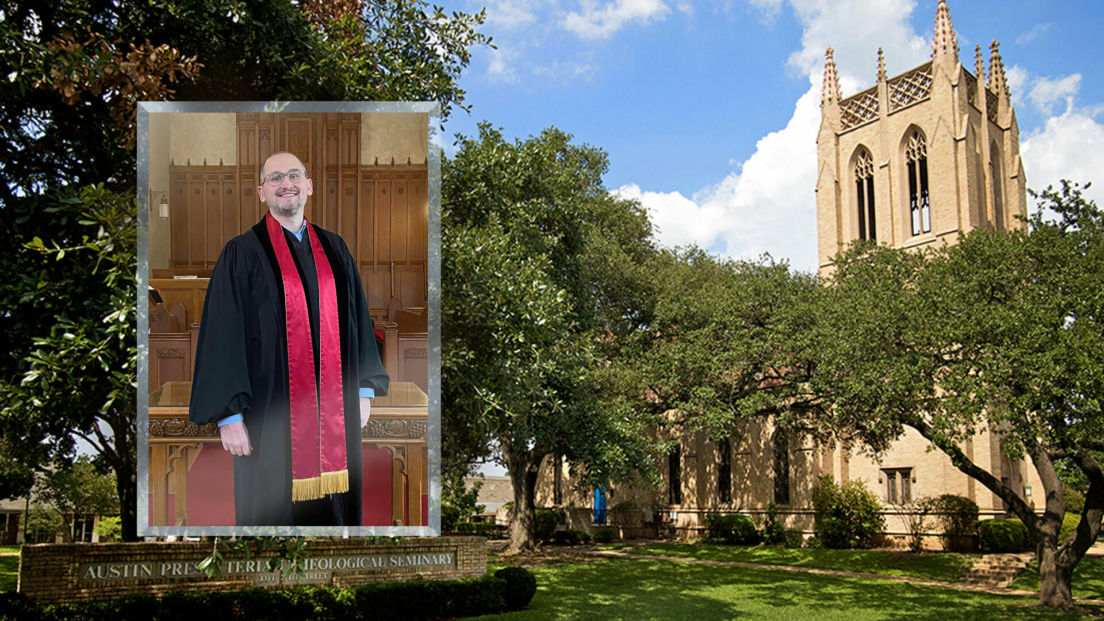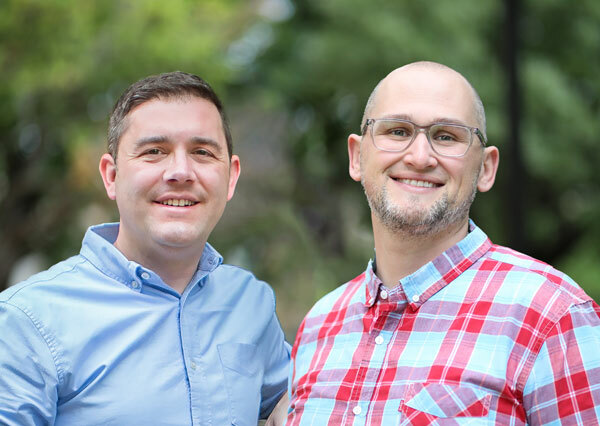
Zach Rivers prepares for ministry
Updated 6-12-2023
God is faithful to the church, providing pastoral leadership in whatever circumstances. And God may call us to ministry at any time in our lives, whether we feel overwhelmed with all that’s on our plates, have other plans, or are unsure of our abilities. By tracking the steps inquirers and candidates take to discern their call, the preparation for ministry process bears witness to the varied paths prospective pastors take to ministry and reveals how God guides the church to build faithful community throughout changing circumstances.
Rev. Tim Blodgett, general presbyter for Eastern Oklahoma Presbytery, resources and supports the work of the Presbytery’s Committee on Preparation for Ministry. Blodgett completed the process himself in 2007 and has seen the need for pastoral leadership in churches change since then. As he states, “With the boomer generation retiring and even before the deaths resulting from complications due to the COVID-19 pandemic, there have not been enough seminary- trained pastors to fill all pulpits. Increasingly roles are being fulfilled by commissioned pastors.”
“If you are seeking to discern a call in your own life, talk to a pastor or call the Presbytery office and I’ll talk to you. You can respond to the call at any age.”
– Tim Blodgett
Also known as commissioned ruling elder, the role of commissioned pastor builds on a rich history of what is commonly called a “lay preacher,” an entirely capable preacher who does not typically have the formal education to pursue the role of teaching elder/minister of word and sacrament and instead brings a wealth of experience from other vocational backgrounds.
Other denominations, including other Presbyterian denominations, have admitted such a role previously, and this path to ministry has become increasingly popular in our denomination within the last three decades. This certification process further builds on the traditional expectation for all elders to be available to preach in their home congregations.

Until recently, a small church in the Eastern Oklahoma Presbytery was led in worship largely by its elders for over two years. Certification becomes a requirement only when an elder is called on to preach before another congregation. Blodgett maintains that while we may see churches shrinking or closing and some rural churches going years without a full-time minister, God is at work doing something new and is good and faithful to the church. The preparation process is one way God prepares us to minister to the church among many others including roles as disciples, mentors, musicians, and K Group leaders.

Zach Rivers is a current candidate for taching elder (minister of Word and Sacrament) in the preparation for ministry process under the care of First Church, and he first heard God’s call to ministry over two decades ago. After a number of false starts and changes in academics and employment, and after establishing a career and family, he has entered the preparation for ministry process just in the past year.
When he was first called to ministry, Zach was a recent Booker T. Washington graduate enrolled to study fire protection at Oklahoma State University. He instead matriculated at Oklahoma Baptist University to pursue ministry and found himself in his faith, as he describes it, “like in a canoe with a hole and no paddle.” Zach returned to Tulsa and completed TCC’s Fire Protection Program just before the city went into a hiring freeze. After completing a bachelor’s degree at The University of Tulsa, Zach entered professional life, ultimately pursuing a career in banking while always keeping his call to ministry in mind. When his employer offered to fund his completion of an MBA, Zach discussed the offer with his wife, and she helped him recognize the time was right for him to attend seminary.
In order to attend Austin Theological Seminary, Zach has changed his life dramatically, leaving his full-time job, moving away from his home, and living apart from his wife and 12-year-old son. Yet he finds strength in the tight-knit community he has formed with his fellow congregants at First Presbyterian. His K Group offered him and his family support when his wife suffered a traumatic brain injury and could not work, changing their lives forever.
“Presbyterianism is a denomination of education and growth.”
– Zach Rivers
Zach believes that Christ-centered community is the bedrock of the church, and he sees strengthening the community of the church at the center of his ministry. For him, it is important that community is authentic, meeting people where they are in all walks of life in order to “do life together.” In this pursuit, Zach considers Dr. Ryan Moore, former associate pastor of First Presbyterian, a role model and feels better prepared for ministry than he did 20 years ago.
Presbyterianism is “a denomination of education and growth,” says Zach, and he is more solid in his faith, knowing why he believes what he believes. He will complete his seminary education over the next two years, and in addition to prayers for discernment, Zach asks for prayers for his family. The goodbye following the last holiday season was the hardest yet, and they will need prayers until they reunite under one roof in Austin in May of 2023.

About the author: Nick McMillan joined First Church in June 2021. He enjoys teaching and leading small group discussions for Exodus high school Sunday school and is a frequent participant in the Before the Rooster Crows Bible study. He is grateful for this opportunity to learn more about the preparation process and current candidates.